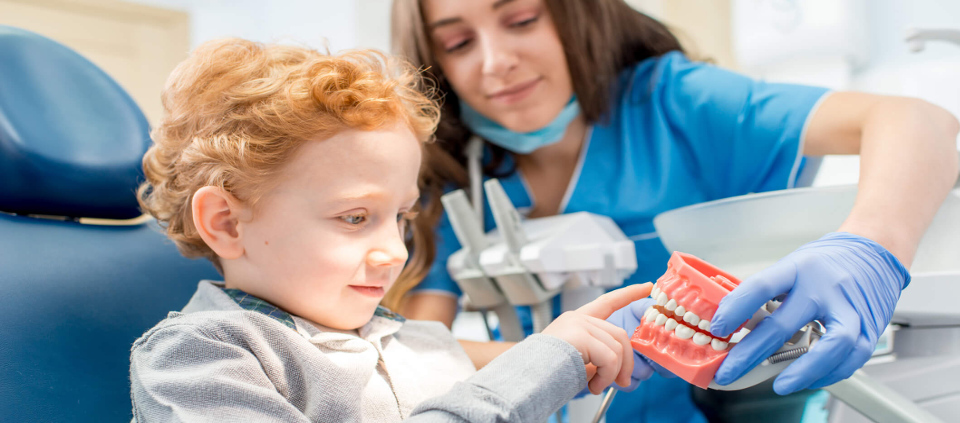Pediatric Dental Emergencies: What Moms And Dads Need to Know for Quick and Effective Treatment
In the world of pediatric healthcare, oral emergencies can emerge suddenly, leaving moms and dads uncertain of just how to manage the situation properly. Understanding the indicators, kinds of injuries, and instant actions to take can make a considerable distinction in the outcome for a kid's oral health. With a fast and suitable action, moms and dads can reduce possible long-term repercussions and guarantee their child gets the essential care immediately. By being prepared and informed, parents can play an essential duty in securing their child's oral wellness.
Indicators of Pediatric Dental Emergencies
When assessing pediatric dental emergencies, it is important for moms and dads to be cautious for specific signs indicating potential major problems. Among the key indications of a dental emergency in kids is relentless tooth discomfort that is not relieved by over the counter pain medications. This could indicate an underlying infection or damage that requires prompt focus from a dental professional. Swelling in the periodontals, face, or jaw area is one more red flag that ought to not be neglected, as it might be an indicator of an abscess or other severe oral problem.

Typical Sorts Of Dental Injuries
Usual types of oral injuries in children commonly result from accidents or sports-related activities that can lead to numerous forms of trauma to the mouth and teeth. One usual dental injury is a fractured tooth, which can vary from a small chip to a much more extreme break involving the internal layers of the tooth. Youngsters may additionally experience dental injuries like tooth intrusion, where the tooth is pushed into the jawbone, or avulsion, which is the full variation of a tooth from its socket.
Immediate Emergency Treatment Actions
Upon coming across a pediatric dental emergency, swift and appropriate initial help procedures are vital to ease discomfort and stop additional problems. For a knocked-out tooth, advise the youngster to carefully rinse the tooth with water, trying not to touch the root, and area it back in the outlet if feasible. If re-implantation is not practical, store the tooth in a container of milk or the kid's saliva until getting to the dental professional.
When to Seek Specialist Assistance
Seeking punctual dental treatment from a pediatric expert visit this web-site is imperative in addressing possible problems arising from pediatric dental emergency situations. Parents should seek specialist assistance immediately if their youngster experiences serious tooth discomfort, facial swelling, hemorrhaging that doesn't quit, a knocked-out permanent tooth, or any type of injury to the mouth or face. These indicators indicate a significant oral problem that needs prompt interest from a pediatric dental professional.
In addition, if a kid experiences consistent tooth level of sensitivity to hot or cool, difficulty eating or ingesting, or signs of infection such as pus around the gum tissues, parents must not delay in seeking specialist dental treatment. These symptoms could suggest underlying dental troubles that need to be addressed quickly to avoid further complications.
In instances of oral emergency situations, it is crucial for parents to get in touch with a pediatric dental practitioner asap to visit the site make sure correct medical diagnosis and therapy - pediatric dentist near me. Delaying expert help can result in exacerbated dental issues and prolonged discomfort for the youngster

Stopping Future Dental Emergencies
To reduce the chance of future dental emergency situations, moms and dads ought to focus on consistent dental health More Help techniques and regular brows through to a pediatric dental practitioner for preventive care. Motivating youngsters to comb their teeth two times a day with fluoride toothpaste and teaching them the appropriate strategy for 2 mins each time can significantly lower the danger of dental issues.
Regular visits to a pediatric dentist for check-ups and cleansings are necessary for early detection of any kind of prospective dental problems. These consultations enable the dental professional to keep track of the child's dental health and wellness, offer professional cleanings to get rid of plaque and tartar accumulation, apply fluoride treatments for added defense, and deal advice on appropriate oral treatment methods.
Conclusion
In verdict, parents need to be mindful of the indicators of pediatric dental emergencies, common sorts of dental injuries, prompt emergency treatment procedures, and when to look for specialist assistance. By taking positive steps to avoid future dental emergency situations, parents can make certain fast and effective therapy for their youngsters. It is crucial to stay notified and prepared in order to handle any type of dental emergency that might develop.